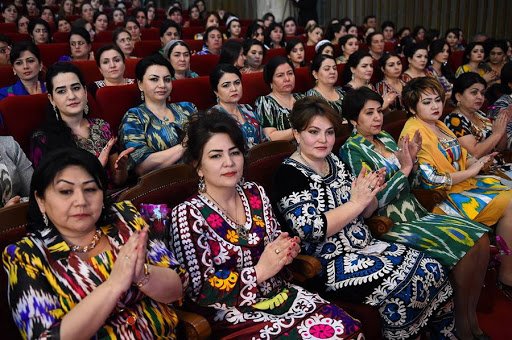Tajikistan Government Banned Hijab and Eidee, citing these are foreign traditions. Tajikistan, a country in Central Asia, has taken a firm stance against certain religious and cultural practices. The government has banned the wearing of the hijab and Eidee,to children. Officials claim these practices are foreign to Tajik culture and threaten national unity. This decision has sparked controversy and debate, both domestically and internationally.
The Tajik government argues that the hijab and Eid celebrations are not part of traditional Tajik culture. They view these as imports from other countries, particularly from the Middle East. Authorities assert that adopting these practices undermines the country’s cultural heritage. The government also expresses concerns about the rise of radicalism. They believe that these religious symbols and festivities could foster extremist ideologies.
Tajikistan has a long history of secularism, especially since gaining independence from the Soviet Union in 1991. During Soviet rule, religious practices were heavily restricted. The post-Soviet government continued this secular tradition. Tajik leaders have often emphasized the need to maintain secularism to ensure stability and progress. In this context, the ban on hijab and Eid celebrations is seen as a continuation of these policies.

The ban has received mixed reactions from the public. Some support the government’s decision, believing it will preserve Tajik culture and prevent radicalism. They argue that these measures will help integrate the country’s diverse population and foster national unity. However, others see it as an infringement on religious freedom. Many Tajiks are Muslims and view the hijab and Eid celebrations as integral to their faith. For them, the ban feels like an attack on their identity and personal rights.
Internationally, the ban has drawn criticism from human rights organizations and Muslim-majority countries. Critics argue that the ban violates fundamental human rights, including the freedom of religion and expression. They call on the Tajik government to respect religious diversity and uphold international human rights standards. Some countries have urged Tajikistan to reconsider its stance and engage in dialogue with its Muslim community.
The ban on the hijab particularly affects women. For many, wearing the hijab is a personal and religious choice. The government’s decision forces these women to abandon an important aspect of their identity. This can lead to social and psychological stress. Additionally, it may limit their participation in public life, as some women might choose to stay home rather than appear in public without their hijab.
Tajikistan has also imposed strict dress codes in educational institutions. Students are prohibited from wearing the hijab in schools and universities. The government insists that this policy promotes a secular and inclusive educational environment. However, critics argue that it discriminates against Muslim students and hampers their right to education. They contend that students should be free to express their religious beliefs.
The ban could have long-term implications for Tajik society. It may deepen the divide between secular and religious communities. Such polarization could destabilize the country and hinder social cohesion. The government’s approach might also influence other Central Asian countries facing similar issues. How Tajikistan navigates this controversy could set a precedent for the region.
Tajikistan’s ban on the hijab and Eid celebrations reflects a broader struggle between maintaining secularism and respecting religious freedoms. The government’s stance aims to protect national culture and prevent radicalism. However, it also raises significant human rights concerns. The challenge lies in finding a balance that honors Tajikistan’s cultural heritage while respecting individual freedoms. As the debate continues, the voices of the Tajik people and the international community will play a crucial role in shaping the country’s future.
4o





Leave a Reply